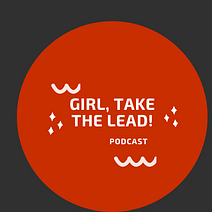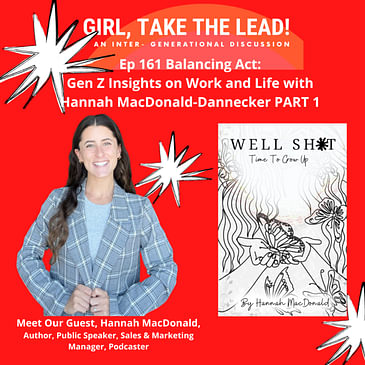Hannah MacDonald-Dannecker, Gen Z, joins us to discuss topics we hope you’ll find super interesting. She offers us amazing insights and advice all generations can learn from.
She is on a mission to bridge the gap between previous working generations and Gen Z to create an open environment where we can work Better Together.
In 2023, she published her first book, entitled, “Well Sh*t: Time To Grow Up”, a post-graduation memoir in which she explores moments from her childhood, as well as her journey after graduation, sharing how she conquered imposter syndrome, uncertainty, and uncomfortable confrontations.
Hannah is a sought-after public speaker who is hired by HR Managers, Business Owners and Operations Teams to help them learn how to connect with Gen Z workers without pulling their hair out! A member of Gen Z herself, and Partner and Sales and Marketing Manager at The Better Together Group of Companies, she brings insights that business leaders cannot get anywhere else about how to work with Gen Z employees.
This is Part 1 of a 2-Part Series.
Here are the topics we covered in this first episode: Insights from her book, Well Sh*T “Situationships” vs friendships Gen Z balance Imposter Syndrome Gen Z balance in job searching and maintaining them
Here are the three takeaways:
1. Remember the three Is from Hannah’s dad: intensity, intentionality, integrity.
2. Imposter syndrome doesn’t need to be a stop sign but can be a warning light to be cautious and intentional.
3. “Don’t let the perception of what you want other people to think about you stand in your way of doing what you need to do.”
More About Hannah:
Born just outside of Toronto, Hannah moved to the US alone at age 17 to attend Liberty University in Virginia. In her free time, Hannah loves to move and be active in new and fun ways! She loves wakeboarding and has competed in two world championships, where she achieved second place in 2019. Hannah also recently launched her own podcast, Workish, which is available only on Spotify.
As Mentioned in the Episode:
Hannah’s podcast, Workish, on Spotify:
https://open.spotify.com/show/61FDhdzDsV7U8k58lfUtok?si=582e250dd4a041e0
Ep 132, Beyond 9 to 5: The Unexpected Magic of Work Friends
https://spotifyanchor-web.app.link/e/IUnmMkEZCJb
Ep 133, Laugh, Listen, Love: The Art of Being a True Friend
https://spotifyanchor-web.app.link/e/OTe1wkEZCJb
Ep 134, Friendship Realities: Fizzles, changes, and Coping Strategies
https://spotifyanchor-web.app.link/e/h1LPikEZCJb
Ep 41, A discussion about Mindfulness with Cynde Denson and the book, Ditching Imposter Syndrome by Clare Jose
https://spotifyanchor-web.app.link/e/Ygpg9vLZCJb
How to Reach Hannah:
hannah@bettertogethergroup.com
Website: https://bettertogethergroup.com/
https://www.linkedin.com/in/hannah-kay-macdonald/
https://www.tiktok.com/@hannahkmacd1
How to Reach Yo Canny:
Our website:
You can send a message or voicemail there. We’d love to hear from you!
email:
yo@yocanny.com (Yo)
FB group: Girl, Take the Lead
https://www.facebook.com/groups/272025931481748/?ref=share
IG: yocanny
LinkedIn:





